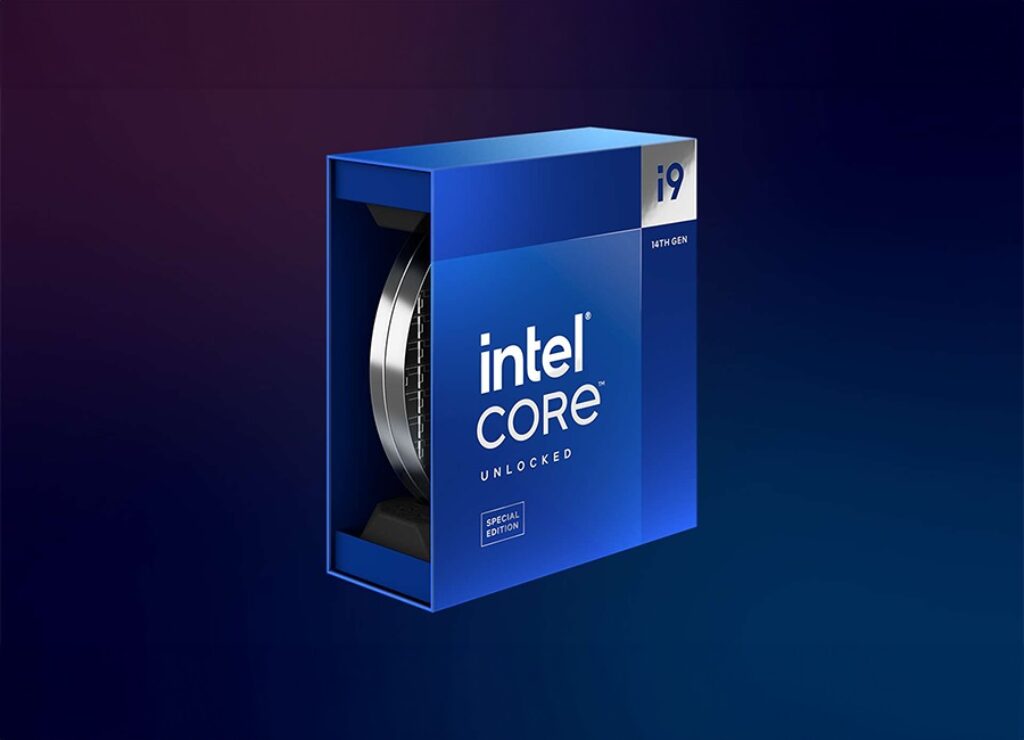How Much Better Is the Intel Core I9 – 14900K compared to the 13900K?
How Much Better Is the Intel Core I9 – 14900K compared to the 13900K? Today, we are about to talk about the Intel Core i9-14900K and it’s competitor, i9 13900K, so the topic is Intel Core i9 14900K vs 13900K! Selecting the right CPU nowadays could be quiet challenging for everyone of us, we all want to maximize efficiency and to get the best performance out of it, in the games and also in the workplace. When Intel launches a new generation of processors, both enthusiasts and professionals are excited to see the performance improvements. The Intel Core i9-14900K, the latest in the series, promises to be faster and more efficient than its processor, the Core i9-13900K. But just how much better is it? This article will break down the key differences, performance metrics, and overall value of upgrading to the i9-14900K.

The Battle of Intel Core i9 14900K vs 13900K: SPECS & FEATURES & PERFORMANCE
Clock Speeds:
The Core i9-14900K boasts a higher clock speed than the i9-13900K, with a boost clock of up to 6.0 GHz compared to the 5.8 GHz of the i9-13900K. This 200MHz increase in base and boost clock speeds contributes to a noticeable yet small performance enhancement. The higher clock speeds mean that the 14900K can handle tasks more swiftly, offering a smoother user experience for both performance and efficiency cores.
Performance Metrics:
Single-Core Performance: On average, the i9-14900K delivers about a 5.6% improvement in single-core performance over the i9-13900K. This makes it better suited for tasks that rely heavily on single-threaded processing, such as certain applications and games.
Multi-Core Performance: The i9-14900K shows a 3.1% improvement in multi-core tasks. This can benefit multi-threaded applications like video editing and 3D rendering, although the gains are marginal.
Synthetic Benchmarks: The i9-14900K outperforms the i9-13900K by approximately 3% in synthetic benchmark tests. These benchmarks, such as 3DMark Time Spy, are designed to simulate a variety of tasks and can provide a good indication of overall CPU performance.
Gaming Performance: The difference between the two CPUs is minimal for gamers. The i9-14900K offers a negligible 0.2% advantage in gaming performance, making it almost identical to the i9-13900K.
Power Consumption and Efficiency:
The i9-14900K and i9-13900K have the same power consumption, with a base power 125W and a maximum turbo power of 253W. They also share similar thermal characteristics, meaning both CPUs run hot and require robust cooling solutions to maintain optimal performance. Despite the higher clock speeds, Intel has optimized the i9-14900K to maintain efficiency, ensuring it doesn't consume more power than its processor.
Features:
Both CPU's share many features, including the same architecture, core count (24 cores: 8 performance cores and 16 efficiency cores), thread count (32 threads), memory support (DDR4/DDR5), and cache sizes (36MB L3 and 32MB L2). However, the i9-14900K introduces Intel's new AI-assisted overclocking feature, which is unavailable on the i9-13900K. This feature can help users achieve higher performance with less manual tuning, making it an attractive option for enthusiasts.
Product specification
Specification for i9 - 14900K
| Cores: | 8 Performance-cores (P-cores) + 16 Efficient-cores (E-cores) |
| Threads: | 32 |
| Base Clock Speed: | P-Cores: 3.2 GHz E-Cores: 2.4 GHz |
| Maximum Turbo Boost Frequency: | P-Cores: 6.0 GHz (Thermal Velocity Boost) E-Cores: 4.4 GHz |
| L3 Cache: | 36MB ( Shared ) |
| Threads: | 32 |
| L2 Cache: | 32MB (2MB per P-core, 4MB per E-core cluster) |
| Socket: | LGA-1700 |
| TDP: | 125 W (base), up to 253W (max boost) |
| Memory Support: | DDR5 - 5600 MHz DDR4 - 3200 MHz Maximum Memory Size: 192 GB ECC Support: YES |
| PCI Express Version: | 5.0 |
| PCI Express Lanes: | 20 |
Single-Core Performance
| Cinebench R23 (Single-Core): | 2304 Points |
| GeekBench 6 (Single-Core): | 3171 Points |
| PassMark CPU ( Single - Core): | 4758 Points |
Multi- Core Performance
| Cinebench R23 (Multi-Core): | 40485 Points |
| GeekBench 6 ( Multi-Core): | 22629 Points |
| PassMark CPU (Multi-Core) | 60861 Points |
Synthetic BenchMarks
| File Compression: | 1940 MB/sec |
| Clang Complication: | 194.6 Klines/sec |
| HTML 5 Browser: | 589.2 pages/sec |
| PDF Renderer: | 638.4 Mpixels/Sec |
| Text Processing: | 318.7 pages/sec |
| Background Blur: | 71.7 images/sec |
| Photo Processing: | 1901.6 images/sec |
| Ray Tracing: | 41.7 Mpixels/sec |
Intel Showdown:
Ultimate Performance Battle
Intel Core i9 14900K vs 13900KNext-Gen Power vs. Proven Performance
Conclusion:
The Intel Core i9-14900K slightly improves clock speeds and performance metrics over the Core i9-13900K. However, these minimal gains make the i9-14900K a marginal upgrade. For users already owning a 13900K, the performance boost may not justify the cost of upgrading. The 14900K is more suitable for those upgrading from older generations like the i9-12900K or earlier.
Benefits of the Higher Clock Speed in the i9-14900K
The primary benefits of the Intel Core i9-14900 K's higher clock speed are seen in specific performance metrics and scenarios. The 200 MHz increase contributes to improved single-core performance, marginal gains in multi-core tasks, slightly better gaming performance in specific scenarios, higher scores in synthetic benchmarks, optimized power consumption, and the inclusion of AI-assisted overclocking.
While these improvements are generally incremental rather than revolutionary, they do provide a performance edge that may appeal to users seeking the best available CPU performance. However, the upgrade may not be justifiable for those already using an i9-13900K unless they require the absolute highest performance.
Does the i9-14900K Experience More Overheating Issues Due to Its Higher Clock Speed?
When considering an upgrade to Intel's latest Core i9-14900K, a key concern for many users is whether this new processor experiences more overheating issues compared to its predecessor, the i9-13900K. The short answer is yes; the i9-14900K does tend to run hotter. Here's a detailed look at why this happens and what you can do about it.
Higher Clock Speeds and Power Consumption
The Intel Core i9-14900K features higher clock speeds than the i9-13900K, with a maximum boost clock of up to 6.0 GHz compared to 5.8 GHz. This increase in clock speed translates to greater power consumption and more heat generation. As a power-hungry CPU, the i9-14900K often requires robust cooling solutions, such as a 360mm AIO cooler, to effectively manage its thermal output.
Overheating and Throttling Issues
Users have reported that the i9-14900K runs very hot even at stock settings. Under load, temperatures can spike to 80-100°C, which can lead to thermal throttling. This overheating issue is particularly pronounced when the CPU is operated in "unlimited power mode," a setting that removes all power and temperature limits set by Intel. This can cause the CPU to draw significantly more power and generate excessive heat.
Mitigation Strategies
BIOS Settings: One effective strategy to manage heat output is to adjust BIOS settings. Enforcing Intel's default power and temperature limits can help. Disabling features like Asus Multicore Enhancement and setting power limits to Intel’s specifications (e.g., 253W) are recommended.
Undervolting: Another method to reduce heat is undervolting the CPU. This involves reducing the CPU voltage, which can lower temperatures with minimal impact on performance. Many users have successfully reduced heat by undervolting the CPU and setting power limits in the BIOS.
Cooling Solutions: Proper installation and maintenance of cooling solutions are crucial. Remounting the cooler with fresh thermal paste and checking that the pump and fans operate correctly can significantly reduce temperatures. High-quality thermal paste and well-optimized fan curves can also make a big difference.
Final Thoughts
The higher clock speeds of the i9-14900K do contribute to more significant overheating issues compared to the i9-13900K. However, these challenges can be managed with proper BIOS configuration, undervolting, and effective cooling solutions. By taking these steps, you can ensure stable performance and get the most out of your i9-14900K. So who really wins when it comes to the Intel Core i9 14900K vs 13900K? We believe that 14900K gets the award for this!
Price list of packages?







